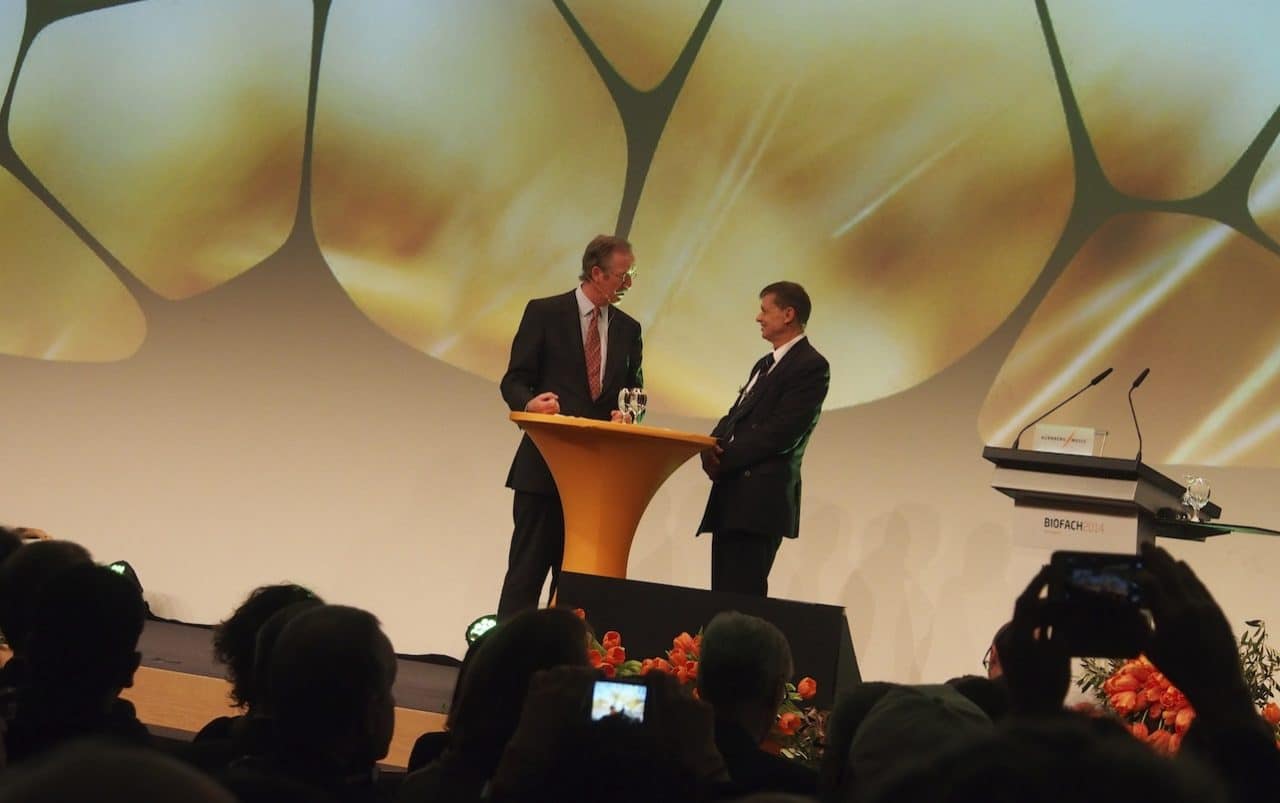The organic industry needs to expand its vision if it is to successfully position itself at the heart of the global debate on food and farming.
That’s the view of two influential voices from the organic word – IFOAM president Andre Leu and Felix zu Löwenstein, chairman of BÖLW
The pair were ‘in conversation’ at last week’s Bioach Congress in Nuremberg and used the occasion to press the case for starting a new phase of organic development – Organic 3.0.
The theme of this year’s Congress – and the title of a new report by the food psychologist Hanni Rützler – Organic 3.0 aims to create a path for the organic movement to develop from its two earlier phases. Lowenstein characterized these as the pioneer phase originating in the late 19th Century, when the original philosophy of organic farming was developed and first put into practice, and the second phase when organic standards were developed in the 1980s allowing the creation of an organic market and its later movement into the mainstream.
“Version 3.0 is about expanding our vision and creating a truly holistic, sustainable system of food and farming,” said Andre Leu. “We started out with a philosophy. But now we need the science to help develop the case for organic in the 21st Century. Most of the billions of dollars spent on agriculture research go to chemical and technological approaches”.
Leu said there was a shift in the balance of research taking place but that still too little was being spent on agro-ecological methods which offered so much promise. “What we don’t hear about is about how organic farming is helping pull small and marginalized farmers out of poverty and grow family farming,” he said.
Continuing the theme Löwenstein said: “We often hear the question ‘oh, isn’t organic something just for rich countries, something we shouldn’t encourage poorer countries to engage in?’. But the reality is that it’s industrial farming that’s driving people off the land. Organic is not a luxury, it’s a necessity and that’s why Organic 3.0 is so badly needed.”
The food and farming debate needed to move beyond yields and margins, said Leu. “Farming is not just about money, it’s about social, economic and cultural questions. And it shouldn’t be about trying to impose a one size fits all mentality. Organic 3.0 is about building on what the pioneers started and creating an organic agriculture that is relevant to current and future generations – and which is appropriate to all people and regions of the world.”











